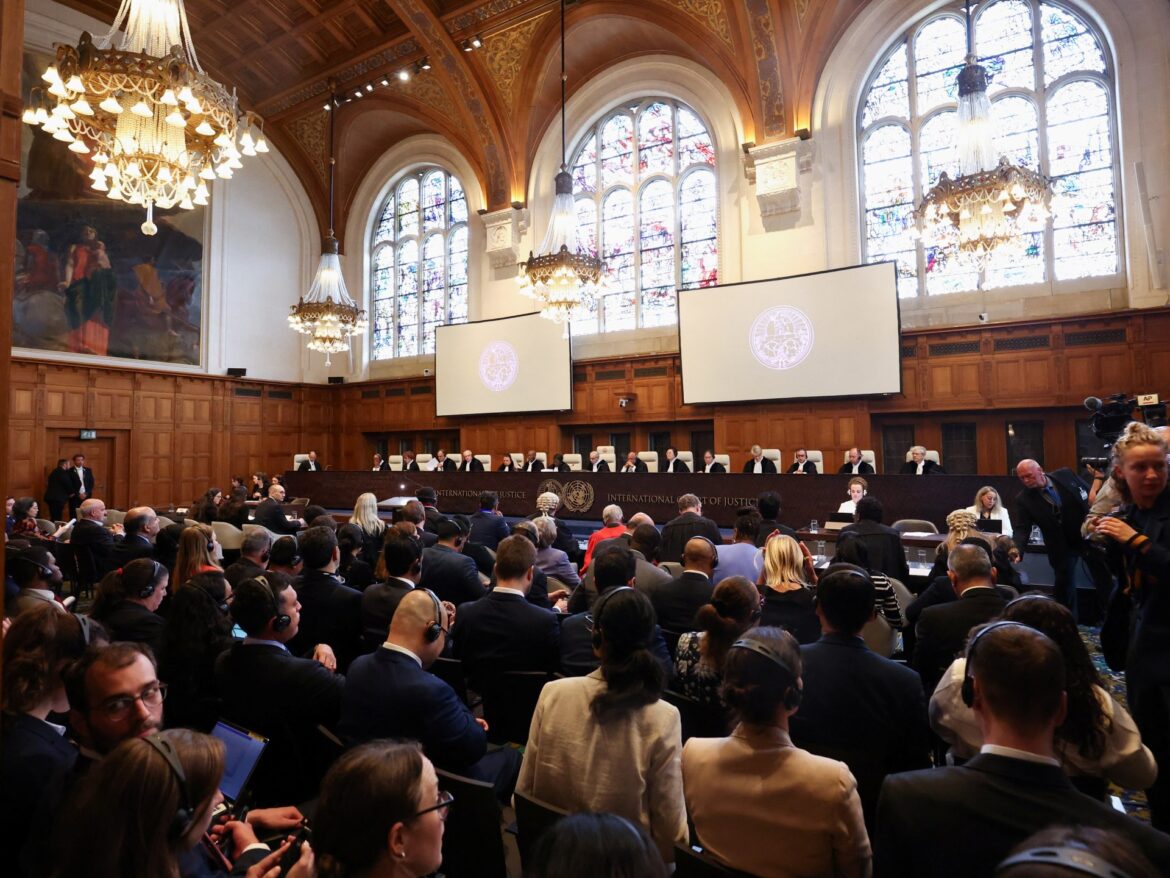As Israel intensifies its attack on the populated southern city of Rafah, lawyers tell the court: “If Rafah falls, so does Gaza.” »
South Africa has urged the International Court of Justice (ICJ) to order Israel to stop its attack on Rafah as part of its case accusing Israel of genocide against the Palestinians.
South Africa, which filed a complaint in January against Israel’s war on Gaza, is seeking additional emergency measures following its offensive on Rafah, a town in the southern Gaza Strip where more than a million Displaced Palestinians have sought refuge from Israeli attacks on other parts of the Gaza Strip. the enclave.
He told the Hague court on Thursday that the Palestinian people faced “continued annihilation” and that the assault on Rafah was “part of the final phase in which Gaza would be completely destroyed.”
Israel is continuing its attacks in Rafah despite “explicit warnings” that they could have “genocidal” consequences, South African lawyer Tembeka Ngcukaitobi said.
Israel, which has dismissed South Africa’s claims that it is violating the 1949 Genocide Convention as baseless, will respond on Friday.
Minutes before the court hearings opened, Israeli Defense Minister Yoav Gallant said the widely criticized Rafah operation would “continue as additional forces enter” the area.
Rafah is a small, crowded town where hundreds of thousands of Palestinians have taken refuge in tents and face a rapid spread of disease and a severe lack of food and clean water. The region’s only hospital closed, leaving only a small, overwhelmed facility.
ICJ judges have already issued interim measures, ordering Israel to take steps to limit humanitarian suffering in Gaza.
Among these provisions was that Israel ensure that basic food supplies arrive without delay to Palestinians in Gaza, all of whom are suffering from severe hunger – some have even faced starvation – due to the total siege imposed by Israel.
This month, the Israeli army seized and closed the Palestinian side of the Rafah border crossing between the Gaza Strip and Egypt, a vital entry point for humanitarian aid. Humanitarian agencies have warned that the closure is significantly hampering their operations.
Because it is Gaza’s main humanitarian aid hub, “if Rafah falls, so does Gaza,” South Africa said in a written submission to the court.
“The failure of humanitarian aid can only be seen as a deliberate suppression of Palestinian lives. Starvation to the point of starvation,” said lawyer Adila Hassim.
“Erase Gaza from the map”
South Africa also called on the ICJ, the United Nations’ highest court, to order Israel to cease its military operations in the Gaza Strip and immediately withdraw from the entire territory.
He asked the ICJ to order Israel to allow unhindered access to Gaza for UN officials, humanitarian groups, journalists and investigators. He adds that Israel has so far ignored and violated previous judicial decisions.
He also asked the court to ensure that Israel reports on steps taken to comply with the orders.
“The key point today is that Israel’s stated goal of wiping Gaza off the map is about to be realized,” South Africa’s legal representative, Vaughan Lowe, told the judges.
“Furthermore, evidence of appalling crimes and atrocities is literally being destroyed and bulldozed, making a clean slate of those who committed these crimes and making a mockery of justice,” he added.
Another South Africa lawyer, Max du Plessis, said Israel’s declared safe zones were a “cruel distortion” because people were often too hungry to flee. Those who were strong enough to take refuge in shelters were sometimes attacked by Israeli forces, he said.
“There is nothing humanitarian in these humanitarian zones,” he said. “Israel’s genocide of the Palestinians continues through military attacks and man-made famine. »
Around half a million Palestinians have been displaced in recent days due to Israel’s land and air campaign in the north and south of the Gaza Strip, according to UN figures.
The Israeli attack killed at least 35,000 people in Gaza, according to Palestinian health authorities.
The hearings on Thursday and Friday will focus solely on the issuance of emergency measures. It will likely be years before the court rules on the merits of the genocide case.
The judgments and orders of the ICJ are binding and final. Even if the court has no way of enforcing them, an order against a country could damage its international reputation and set legal precedents.



